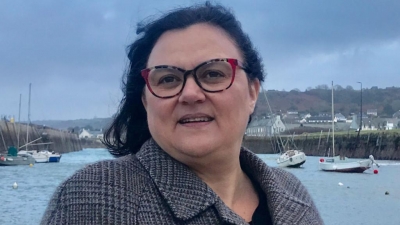The young William Bull started writing a diary when he was 13 (1876) and wrote it continuously for 55 years, until his death. He was involved in Conservative politics all his adult life as an activist, then a London Councillor and finally a Conservative MP (1900-1928) for Hammersmith. From his political diary and the letters that he received emerges a man with political ambition, a dedicated father and husband as well as a helpful relative for his extended family. As a hardworking grassroots MP, he was well liked in his Hammersmith constituency, and easily re-elected from 1900 to 1928. Unionist, he was all the same a suffragist and famously “a Channel Tunnel enthusiast”. He also made his solicitors’ firm financially secure. William Bull seemed to have had multiple lives featuring in the many separate diaries that he wrote, constructing both a complex and ordinary man that contributes to the history of masculinities before the First World War.
Myriam Boussahba-Bravard is full Professor of British History at the Université de Paris (formerly Paris Diderot) in LARCA-CNRS (UMR8225) and in the British & American Studies faculty. She lectures in 19th century British history, especially gender history to 2nd year to MA students. Her scholarly interests lie in the area of British and international feminism. She edited a volume, Suffrage Outside Suffragism. Women’s Vote in Britain, 1880-1914 (Palgrave Macmillan, 2007). She was the historical consultant for a much remarked upon documentary, “Les suffragettes: ni paillassons ni prostituées” by Michèle Dominici, first issued on French TV in 2012. Recently, she has worked on the feminist congresses held alongside international exhibitions as her publications, “L’autopromotion des femmes à la Foire internationale de Chicago (1893)”, Relations internationales 164 (Paris: PUF, 2016), and a chapter on the 1908 International Women’s Suffrage Alliance Congress in Amsterdam (in the forthcoming Transnational Transgressions, New York: Routledge 2020) She has coedited with Rebecca Rogers Women in International Exhibitions 1876-1937 (New York & London: Routledge, 2017). She has coauthored (with 11 colleagues) L’Europe des femmes XVIII-XXIe siècle (Women’s Europe 18th-21st centuries) (Paris: Perrin, 2017). She is currently revising a book on the activist Teresa Billington-Greig and researching “The Writing of the Self” by Edwardian males before WW1. She leads the LARCA gender group. She is an overseas Research Fellow at Churchill College, Cambridge University, UK.


